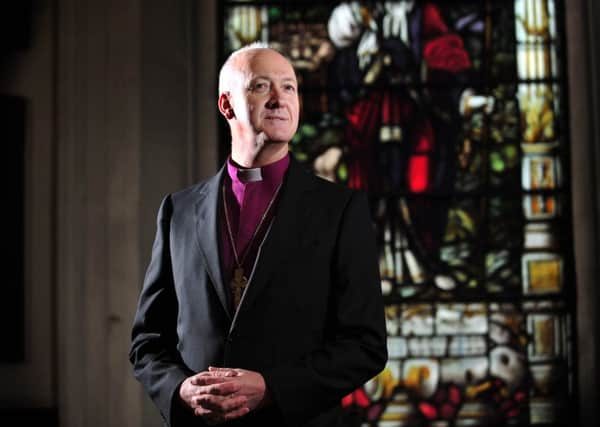Nick Baines: Why words matter more than ever in a post-truth world


Because of this, I want to say something about language in a post-truth or post-factual world, and pose a couple of questions about the assumptions we make regarding history.
The United Kingdom, as illustrated by the unfortunate reference of the Foreign Secretary (Boris Johnson) to Germany’s past, has defined itself by its share in the defeat of fascism in the 20th century.
But have we moved on?
Advertisement
Hide AdAdvertisement
Hide AdIf we assume that our domestic order has been defined for ever by a past victory, we should not be surprised when our complacency finds itself undermined by events that are not trapped in that same narrative.
Democracy and the rule of law are not natural and immutable givens, but are goals for which we must struggle in each generation.
This is why the narratives that guide our self-understanding as a nation among nations on a very small planet in a very large universe matter so much.
It is why the UK seeing itself through the lens of a long-gone empire is so facile. It is why seeing Germany simply through the lens of Adolf Hitler is ridiculous. It is why illusions of power are dangerous when they shape language and rhetoric that are heard differently by other audiences.
Advertisement
Hide AdAdvertisement
Hide AdWe need new narratives for the contemporary world – narratives of hope rooted in an authentic anthropology that takes seriously the destructive elements of human nature, or what used to be known as “sin”.
Western liberalism has become complacent about its own self-evident superiority. It is arguable that the proper balance between individual rights and concerns for the common good has not been established.
I would argue that this complacency has contributed to the sense of alienation and detachment being seen in what is being called political populism.
Progress is not inevitable; it is not true that things can only get better; human rights cannot be assumed to be self-evidently right. Battles for peace, order and social cohesion are not won once and for ever. The tendency to entropy is powerful and finds it easier to pull down rather than build up.
Advertisement
Hide AdAdvertisement
Hide AdThe sorts of populism we see now are destructive precisely because they evidently collude in destruction without a compelling vision for what should be constructed. Hence, we have seen a referendum campaign fuelled by lies, misrepresentation and an easy readiness to abuse language. Who are the elites – especially when they are being condemned or ridiculed by public school and Oxbridge-educated journalists?
Why does it not matter that promises can be made in a referendum campaign that simply get dismissed within hours of that campaign ending?
Can liberal order survive the corruption of language and the reduction of truth or fact to mere political convenience or expediency? It is not a game.
The world has witnessed the inauguration of a US President for whom truth is a commodity to be traded. Direct contradiction of what is proven fact is loudly asserted without shame or embarrassment. I make no comment or judgment about his ability to govern the United States or contribute intelligently and wisely to the establishment of a just international order; I simply observe that the corruption of language and truth is in itself dangerous for everyone.
Advertisement
Hide AdAdvertisement
Hide AdThis debate is about the challenges to the liberal international order posed by the development of populism and nationalism around the world. The liberal international order is not a natural given or an inevitable right.
It begs as many questions of inherent legitimacy, for example, as it addresses. Populism and nationalism are not new phenomena, and their development is a constant in societies that feel uncertain or have lost the security found in a clear sense of common or mutual identity.
The particular danger of today’s developments around the world is that instability is far easier to create than stability; that order is fragile and chaos a tempting attraction; that the spectre haunting Europe and the world has little to do with “what the people – whoever they are – want” and much to do with how they can be manipulated into thinking that what they are told they want is in fact what is good for them.
The anti-elitist, anti-establishmentarians are perpetrating a fraud in their elitist and self-promoting rhetorics. But they will not be the people to pay the price.
Advertisement
Hide AdAdvertisement
Hide AdI suspect that the order of the past is being challenged by the threat or promise of a new order. It is essential that we articulate a compelling vision for an order that serves the common good, shapes a good society and resists the claims of a post-truth rhetoric which tells us that lying is acceptable as a means to an end.
Nick Baines is the Bishop of Leeds who spoke in a Lords debate on populism and nationalism. This is an edited version.